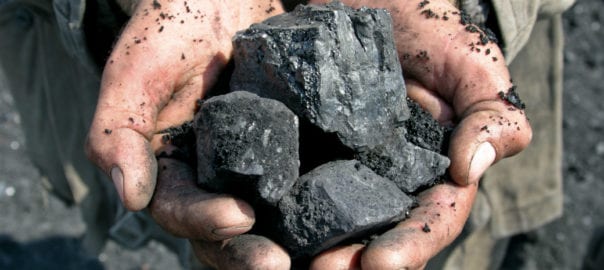- Write by:
-
Thursday, April 21, 2022 - 14:43:18
-
367 Visit
-
Print

Mining News Pro - Researchers from Australian National University (ANU) have explored China’s plans to bolster energy security in the wake of the Russian invasion of Ukraine while aiming to hit net zero within 40 years.
China is aiming for net-zero carbon emissions by 2060 and an emission peak before 2030. This will reduce its consumption of coal for power generation and steelmaking.
Simultaneously, China is also aiming for improved energy security, primarily with expanded domestic coal production and transport infrastructure.
ANU research fellow Jorrit Gosens and ANU Institute for Climate Energy and Disaster Solutions head of energy Frank Jotzo analysed the effects of both these pressures on Chinese coal imports, with a purpose-built model of China’s coal sector with installation-level detail, representing roughly a 300-fold increase in granularity versus earlier models.
“Our model suggests that if China sticks to its current climate pledges, thermal coal imports will drop by a quarter within three years from 210 megatonnes (Mt) in 2019 to 155Mt by 2025,” Gosens and Jotzo stated through The Conversation.
“That means Australian exports could fall by 20 per cent by 2025, while Australian coking coal exports could fall even more.”
The research found that Chinese coal consumption affects seaborne imports much more strongly than domestic supply.
Recent expansions of rail and port capacities, which reduce the costs of getting domestic coal to southern coastal provinces, will also further reduce the demand for seaborne thermal coal and amplify the effect of decarbonisation on coal imports.
Seaborne coking coal imports are also likely to fall because of the expanded supply of cheap and high-quality coking coal from neighbouring Mongolia.
“Overall, our model makes clear China’s demand for coal – expected to plateau or fall over the next few years – coupled with its expansion of domestic mine and transport capacity will reduce the role for Australian coal,” the researchers stated.
“The world’s top buyer of coal will increasingly be able to supply its power and steel plants with domestically mined coal at competitive costs.
“China’s ability to cut seaborne coal imports will grow further if its government increases its decarbonisation ambitions. These plans will be a key influence on the remaining demand for seaborne coal.”
Short Link:
https://www.miningnews.ir/En/News/621112

China’s state planner on Friday finalized a rule to set up a domestic coal production reserve system by 2027, aimed at ...

Chile’s SQM called another investors meeting at the request of its second-largest shareholder, Tianqi Lithium Corp., ...

Iron ore futures prices drifted higher on Thursday as the latest soft data from top consumer China triggered renewed ...

The world’s coal-fired power capacity grew 2% last year, its highest annual increase since 2016, driven by new builds in ...

Peabody Energy Corp. shares sunk to the lowest in seven months after the biggest US coal miner warned that first-quarter ...

Polish government is abandoning plans to separate coal-fired power plants into a special company and is considering ...

Vitol Group confirmed that it’s starting to rebuild a trading book for metals after a long stint out of the market, with ...

BMO Bank quietly dropped its policy restricting lending to the coal industry in late 2023, helping it avoid being ...

Copper traded near a 15-month high as supply concerns and brighter demand prospects triggered a slew of bullish calls on ...
No comments have been posted yet ...